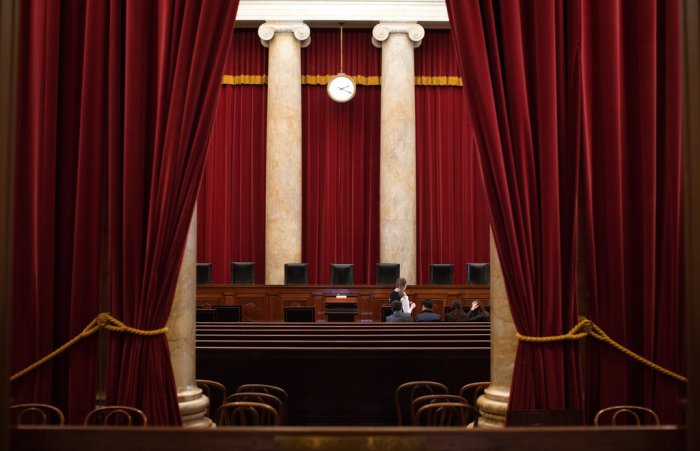Legislating from the bench meaning – Legislating from the bench, a contentious concept that has sparked debate for decades, refers to the practice where judges create new laws or modify existing ones through their rulings. This practice raises fundamental questions about the separation of powers and the role of the judiciary in a democratic society.
The historical evolution and different forms of legislating from the bench will be explored, along with its potential impact on the legislative and executive branches of government. We will examine the criticisms and arguments surrounding this practice, analyze its legal and constitutional implications, and consider comparative perspectives from other legal systems.
Definition and Meaning
Legislating from the benchrefers to the practice of judges making new laws or significantly altering existing laws through their judicial decisions.
Historically, the term has been used to describe judicial decisions that create or modify legal rules without clear statutory or constitutional authority.
Types and Forms
Judicial Lawmaking
Involves judges creating new legal rules or modifying existing ones to fill gaps in the law or address novel legal issues.
Common Law Development
Judges gradually modify the common law through their decisions, creating new precedents and refining existing ones.
Constitutional Interpretation
Judges interpret the constitution and determine its meaning, which can have significant legislative effects.
Impact and Consequences: Legislating From The Bench Meaning
Separation of Powers
Legislating from the bench can blur the lines between the legislative and judicial branches of government.
Legislative Branch
Can limit the ability of the legislature to enact laws, as judges may preempt or modify legislative intent.
Executive Branch
Can affect the executive branch’s implementation of laws, as judges may create new legal obligations or alter existing ones.
Criticisms and Arguments
Judicial Activism
Critics argue that judges are overstepping their role by making new laws, which is the responsibility of the legislature.
Judicial Restraint
Supporters argue that judges have a responsibility to interpret the law and fill gaps, especially when the legislature has not addressed certain issues.
Legal and Constitutional Issues

Judicial Precedent
Legislating from the bench creates new precedents that can be binding on future courts.
Judicial Activism
The extent to which judges can legislate from the bench is often debated, with different perspectives on judicial activism and restraint.
Comparative Perspectives
United States
Legislating from the bench is a common practice, particularly in areas such as constitutional interpretation and common law development.
United Kingdom
Judges have a more limited role in lawmaking, with Parliament holding primary legislative authority.
Ethical Considerations
Judicial Discretion
Legislating from the bench requires judges to exercise discretion, which can raise concerns about bias or inconsistency.
Limits of Judicial Power, Legislating from the bench meaning
Judges must balance their responsibility to interpret the law with the limits of their authority to make new laws.
Proposed Solutions and Reforms

Judicial Self-Restraint
Judges can limit their own lawmaking by adhering to the principle of judicial restraint.
Legislative Reform
Legislatures can clarify the law and reduce the need for judicial lawmaking by addressing gaps or ambiguities in existing laws.
Frequently Asked Questions
What are the main criticisms of legislating from the bench?
Critics argue that it undermines the separation of powers, gives too much power to unelected judges, and can lead to unpredictable and inconsistent laws.
What are the arguments in favor of legislating from the bench?
Proponents argue that it allows judges to adapt the law to changing societal norms, protect minority rights, and fill gaps in legislation.
How does legislating from the bench differ in different legal systems?
The extent to which judges can legislate from the bench varies significantly across legal systems, with some systems giving judges more discretion than others.